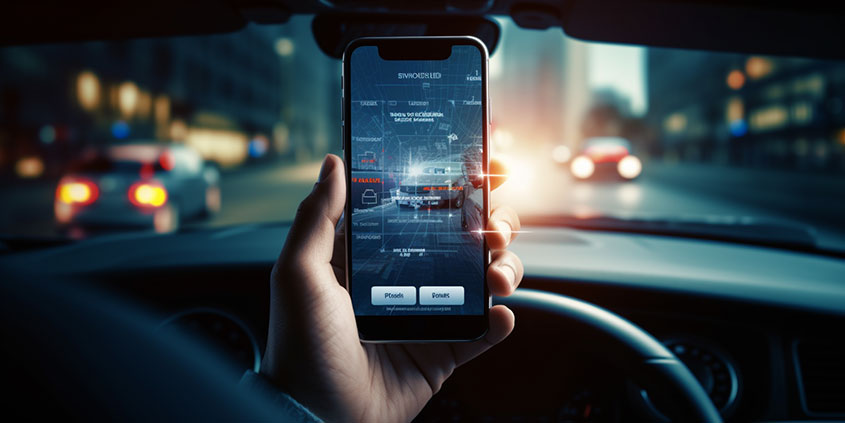A DUI charge, or driving under the influence, is a grave legal offense with immediate and long-term consequences. From the initial arrest to potential jail time, fines, and the impact on personal and professional life, a DUI has a significant ripple effect.
If you've found yourself in this situation, or are simply just curious about the repercussions, you might be wondering: What happens when you get a DUI? This comprehensive guide breaks down the step-by-step implications of receiving a DUI charge and the dangers of a DUI.
Drunk Driving Cases in the United States
In the United States, drunk driving continues to be a pervasive problem, contributing significantly to road accidents, injuries, and fatalities. Despite heightened awareness and strict laws, drunk driving remains a leading cause of traffic-related fatalities.
Annually, approximately 1.5 million people are arrested for driving under the influence of alcohol or narcotics, according to the Federal Bureau of Investigation. This figure equates to one DUI arrest for every 215 licensed drivers in the United States.
The National Highway Traffic Safety Administration (NHTSA) reports that around 37 people die daily in drunk-driving crashes in the United States. This equates to one death every 39 minutes, a chilling statistic that underlines the dangers of impaired driving.
Understanding the stark statistics associated with drunk driving can lend a critical perspective to the scope and seriousness of this issue. Now onto the main question: What happens when you get a DUI?
DUI Arrest: A Startling Wake-Up Call
The journey through a DUI charge begins with the arrest. When a law enforcement office suspects impaired driving due to alcohol or drugs, they initiate a stop, and the following scenarios might take place:
-
Field Sobriety Tests: The officer may administer field sobriety tests, including observational tests such as the one-leg stand test, walk and turn test, or horizontal gaze nystagmus test.
-
Breathalyzer Test and Blood Tests: The officer also conduct a breathalyzer test to measure your blood alcohol concentration (BAC). In some instances, a blood test may be required for more accurate results.
Legal Proceedings: DUI Charges and Court Appearances
Post-arrest, you will likely face legal proceedings that can be complex and daunting.
-
Arraignment: The first stage in court proceedings is arraignment, where you are formally charged. You will have the opportunity to enter a plea at this stage.
-
Pre-trial Motions and Negotiations: Your defense attorney may file motions to suppress certain evidence or negotiate with the prosecutor to reduce charges or penalties, especially if it's a first-time offense.
-
Trial: If a plea deal isn't reached or if you plead not guilty, the case proceeds to trial. Here, both sides present their case, and the judge or jury delivers a verdict.
Penalties and Consequences: A DUI’s Lasting Impact
DUI charges lead to severe penalties and long-lasting effects, both legally and personally.
Fines and Jail Time
If convicted, you could face hefty fines, probation, and even jail time. The severity of the penalties largely depends on the circumstances of the offense and any previous DUI convictions.
License Suspension and Ignition Interlock Devices
Often, a DUI conviction results in the suspension of a driving license. In some cases, you may be required to install an ignition interlock device in your vehicle, which prevents the car from starting unless you pass a breathalyzer test.
DUI Education Programs
Many jurisdictions mandate DUI education programs for offenders. These programs aim to educate individuals about the dangers and consequences of impaired driving.
Insurance Consequences
A DUI conviction often leads to increased auto insurance premiums. Insurance companies view DUI offenders as high-risk drivers and adjust rates accordingly.
Life After a DUI: Personal and Professional Impact
Beyond legal consequences, a DUI can have significant personal and professional repercussions.
Certain jobs, particularly those involving driving or operating heavy machinery, may be off-limits following a DUI conviction. Additionally, the conviction could influence future job prospects, as many employers conduct background checks.
A DUI can strain personal relationships and lead to stigma and emotional stress. Furthermore, the financial burden of fines, legal fees, and increased insurance premiums can lead to significant hardship.
Frequently Asked Questions
1. Can a DUI charge be dismissed?
While it's possible for a DUI charge to be dismissed, it largely depends on the specifics of the case, the evidence, and the skills of the defense attorney.
2. Does a DUI affect my credit score?
A DUI itself does not affect your credit score. However, if you fail to pay fines or if your charges lead to civil judgments, these could negatively impact your credit score.
3. Can a DUI conviction be expunged from my record?
Expungement laws vary by state. In some cases, a DUI conviction can be expunged after a certain period and under specific conditions.
Conclusion
Now that you know what happens when you get a DUI, it’s essential to know that when it comes to drinking and driving, the best defense is always prevention.
A DUI charge marks a challenging time filled with complex legal proceedings and lasting repercussions. Understanding these consequences underscores the importance of responsible behavior behind the wheel.
Stay safe and compliant on the road by learning about the common driving habits that cause car accidents.







